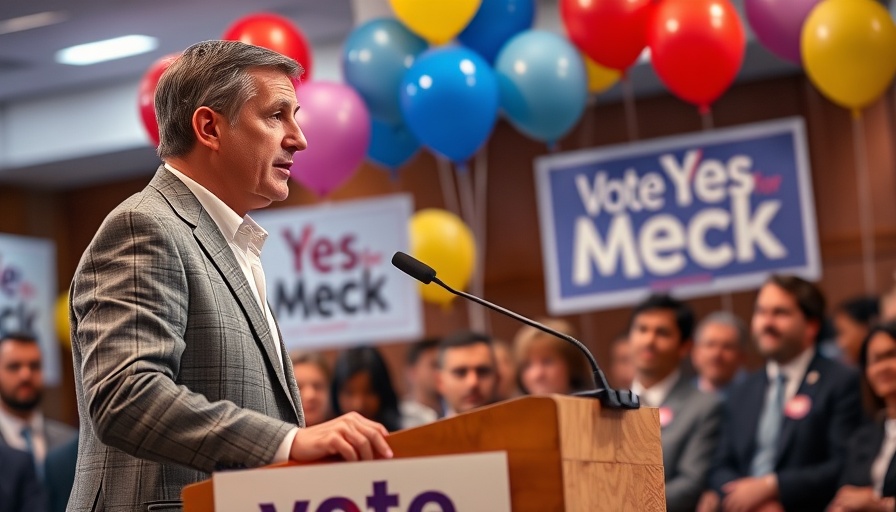
Charlotte Leaders Rally for a Transformative Transit Plan
As Charlotte braces for significant changes, local leaders have launched a robust campaign aimed at rallying support for a bold $25 billion transit plan. Under the banner of “Yes for Meck,” this initiative seeks to enhance economic mobility and alleviate the city’s notorious congestion through a sales tax increase aimed at improving public transportation.
Understanding the Transit Tax Proposal
The proposed plan involves raising the sales tax in Mecklenburg County to 8.25%, which would directly fund a comprehensive overhaul of transportation infrastructure. This means that for an average Charlotte household, the cost equates to about $240 a year. What does this investment promise? An allocation of 40% of funds would benefit roads, sidewalks, and bike lanes; 40% would go toward enhancing rail transit, while the remaining 20% is designated to bolster bus services. These proposed changes aim to create a county-wide transportation authority that streamlines services and improves the efficiency of transit options.
The Voices Behind the Movement
At a rally held at Bojangles Coliseum, key figures like Gene Woods, the CEO of AdvocateHealth, passionately articulated the need for this change. Using a metaphor likening the region’s transport system to clogged arteries, Woods argued that investing in transportation is synonymous with investing in the health of the community. Charlotte Mayor Vi Lyles echoed this sentiment, emphasizing that the proposed plan directly correlates with equity and inclusion, specifically benefiting low-income residents.
Challenges Ahead: A Divided Community
While support appears strong among city officials and business leaders, there are notable dissenters. For instance, Matthews is not backing the initiative, voicing concerns over the lack of Silver Line light rail service. The divide raises questions about whether the campaign can rally sufficient grassroots support across the region, especially in districts with varying priorities and perspectives regarding urban development.
Financial Commitment and Campaign Strategy
The Charlotte Regional Business Alliance has committed a whopping $3 million to this campaign. Given that voter turnout in municipal elections hovers around 15%, this financial investment is crucial to ensuring that the message resonates with the wider community. The campaign intends to leverage strong local journalism and direct outreach to engage residents, presenting not just the financial implications but the transformative potential of the plan.
What’s at Stake for Charlotte’s Residents?
The future of Charlotte’s transportation relies heavily on this voter's decision this November. As residents weigh the implications of a sales tax increase, it is essential for them to consider both immediate benefits—like reduced congestion and improved public transport options—and the long-term growth of the city. The decisions made now will echo through the fabric of Charlotte for decades, either facilitating its evolution into a more connected, economically vibrant community or perpetuating the struggle against outdated infrastructure.
Conclusion: A Call to Action
As Charlotte residents prepare for the upcoming vote, their involvement and understanding of the transit plan are more crucial than ever. This proposal represents a definitive choice about the future of urban mobility in the city. If you enjoyed this story, why not stay connected? Join Charlotte Local Unplugged on Facebook and YouTube for exclusive local information. @charlottelocalunplugged
 Add Row
Add Row  Add
Add 


Write A Comment